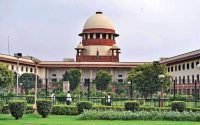$100 Website Offer
Get your personal website + domain for just $100.
Limited Time Offer!
Claim Your Website NowSupreme Court hands a win to abortion-rights advocates in fight over strict 2016 Alabama law
Source: cnbc.com
The Supreme Court said Friday it will not hear arguments over a 2016 Alabama abortion law that outlaws the most common procedure used during a pregnancy’s second trimester. The decision means the law, which had been blocked by lower courts, will not go into effect.
The case concerned a law enacted by Alabama lawmakers barring the dilation and evacuation procedure. The procedure, which is typical after about 15 weeks, involves dilating the cervix and removing fetal tissue, often in multiple pieces, which is prohibited by the law’s language banning “dismemberment.” The law provides an exception in cases involving serious health risk to the mother.
The procedure accounts for 99% of abortions performed after 15 weeks in Alabama, according to attorneys for two Alabama women’s centers and two doctors who challenged the law.
The law never went into effect. Two federal courts blocked the law after finding that there was no alternative method that was safe, effective and available. The Supreme Court has held that state bans on abortion before the fetus is viable are unlawful.
“In our judicial system, there is only one Supreme Court, and we are not it,” Chief Judge Ed Carnes of the 11th U.S. Circuit Court of Appeals, based in Atlanta, wrote in the court’s decision keeping the law from going into effect.
In an opinion concurring with the court’s decision not to grant the case, Justice Clarence Thomas, the court’s most conservative member, repeated his position that the court has erred in its past rulings on abortion. But he acknowledged that under the court’s precedents, the law is not valid.
“The notion that anything in the Constitution prevents States from passing laws prohibiting the dismembering of a living child is implausible,” Thomas wrote.
“But under the ‘undue burden’ standard adopted by this Court, a restriction on abortion — even one limited to prohibiting gruesome methods — is unconstitutional” if the purpose or effect of the law is to impose an obstacle on abortions before viability, he wrote, citing the court’s 2016 decision, Whole Woman’s Health v. Hellerstedt.
The Supreme Court’s announcement comes as conservative states across the country, including Alabama, are racing to pass restrictive abortion laws in the hopes of testing the top court’s willingness to uphold its abortion precedents.
Those efforts followed the confirmation of President Donald Trump’s second nominee, Justice Brett Kavanaugh, solidifying the court’s conservative majority.
Alabama Gov. Kay Ivey, a Republican, signed a different anti-abortion law in May, banning doctors from performing abortions during any stage of pregnancy. It’s the nation’s most restrictive abortion law.



